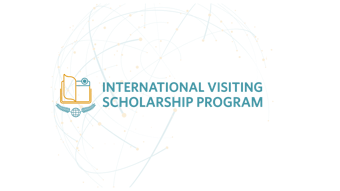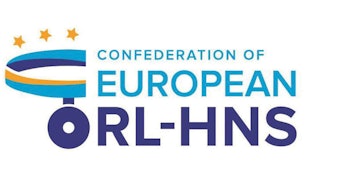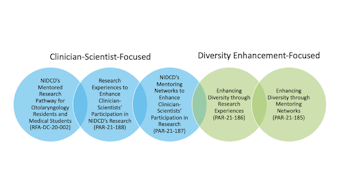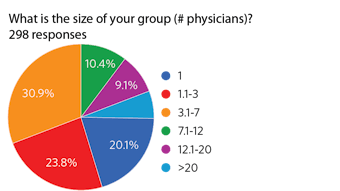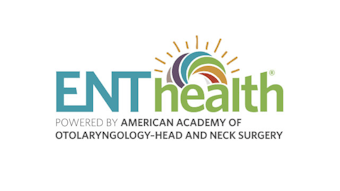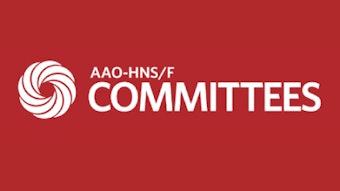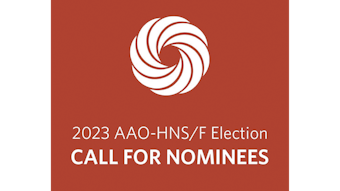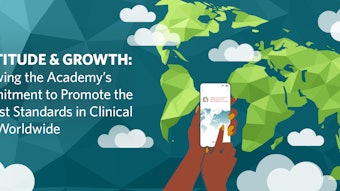The AAO-HNSF 2023 Annual Meeting & OTO Experience Call for Science: Nashville
The Annual Meeting Program Committee offers advice on preparing a successful submission for Panel Presentations and Expert Lectures as well as Scientific Orals and Posters.
Daniel C. Chelius, Jr., MD, Annual Meeting Program Coordinator,
and Michael J. Brenner, MD, Annual Meeting Program Committee Member
 With over 2,200 submissions, the Call for Science for the AAO-HNSF 2022 Annual Meeting & OTO Experience in Philadelphia, Pennsylvania, was one of the largest ever. The response indicated our commitment to teaching and research as a community and our desire to get back together. Some of the most common comments we heard in Philadelphia were that the 2022 program balanced the critical core knowledge of our field with exciting lines of inquiry as well as highlighted both critical controversies and a rising generation of speakers. That’s a tremendous credit to our meeting faculty and scientific presenters and sets a high bar for the 2023 meeting in Nashville, Tennessee!
With over 2,200 submissions, the Call for Science for the AAO-HNSF 2022 Annual Meeting & OTO Experience in Philadelphia, Pennsylvania, was one of the largest ever. The response indicated our commitment to teaching and research as a community and our desire to get back together. Some of the most common comments we heard in Philadelphia were that the 2022 program balanced the critical core knowledge of our field with exciting lines of inquiry as well as highlighted both critical controversies and a rising generation of speakers. That’s a tremendous credit to our meeting faculty and scientific presenters and sets a high bar for the 2023 meeting in Nashville, Tennessee!
With the impressive submission turnout, there was obviously more competition for the precious speaking opportunities in 2022. We anticipate the same for Nashville in 2023. Here is some advice on preparing a successful submission as you plan to answer this year’s Call for Science.
 Daniel C. Chelius, Jr., MD
Daniel C. Chelius, Jr., MD
Annual Meeting Program CoordinatorHow to Create a Successful Panel Presentation or Expert Lecture Series Abstract
Daniel C. Chelius, Jr., MD
Annual Meeting Program Coordinator
Like successful scientific submissions, a great presentation abstract begins with a great question. Brainstorm the key questions in our field with friends and colleagues to come up with areas of inquiry. If you’re having trouble getting started, review the Gap Analysis Topics in the Call for Science Guidelines for ideas. Once you have a topic area, consider reviewing prior meeting programs to ensure that the topic isn’t already robustly covered at the Annual Meeting.
Once you have a topic in mind, consider whether it is an area already well informed by the medical literature and standard of care. If so, it would be most amenable to an Expert Lecture Series presentation, and a successful abstract must demonstrate the faculty’s expertise through different forms of scholarship on the topic. If the topic is still open to robust debate and discussion, it is ideal for a Panel Presentation. Panels that involve problem-solving and active conversation are typically more successful.
As you organize the faculty for your presentation, be sure to consider both expertise and a diversity of experience and representation. The Annual Meeting Program Committee has the dual responsibility of selecting a world-class education program for Nashville while also supporting the development of our future teachers and experts. Consider seeking a well-recognized mentor to guide the discussion of a complex topic among up-and-coming leaders. For previously presented Expert Lecture Series courses, there will be an option this year to include three faculty members by bringing on a new junior instructor and designating one of the senior presenters as a formal “Course Mentor.”
Finally, remember to have fun with your colleagues! A successful abstract should promise an interesting and engaging session next fall in Nashville.
 Michael J. Brenner, MD
Michael J. Brenner, MD
Annual Meeting Program Committee MemberHow to Create a Successful Scientific Abstract
Michael J. Brenner, MD
Annual Meeting Program Committee Member
Crafting a winning Scientific Oral or Poster Presentation requires both effort and intentionality. Months, or even years, of work need to be distilled into a concise, coherent summary. A well-written abstract that is built on strong science will be rewarded with a podium session, often leading to a peer-reviewed publication. In contrast, a hastily prepared abstract that lacks organization and substance invariably falls to the wayside. Although great abstracts can take a variety of forms, a few time-tested principles can maximize prospects for success in the peer review process.
A strong abstract begins with a compelling research question. High impact projects address clinically important problems, deepen understanding, and expand current knowledge. Hypothesis-driven studies test assumptions, address challenges in patient care, and inform clinical practice. Randomized trials or propensity matched studies that control for covariates and confounders minimize risk of bias. Solid database or survey studies also have a role, but they must report a breadth of findings and acknowledge limitations. Valid statistical procedures are critical.
After the investigation and analyses are completed, the abstract needs to showcase the science effectively. Not only do reviewers score abstracts, but attendees use the abstract to decide whether to attend a Scientific Oral Presentation or visit a Poster. Make the abstract easy to understand and highlight the salient findings. The best abstracts command attention through a clear rationale for the research, a lucid description of what was done, innovative findings, and key implications for practice. A great abstract is the hallmark of a great project!


